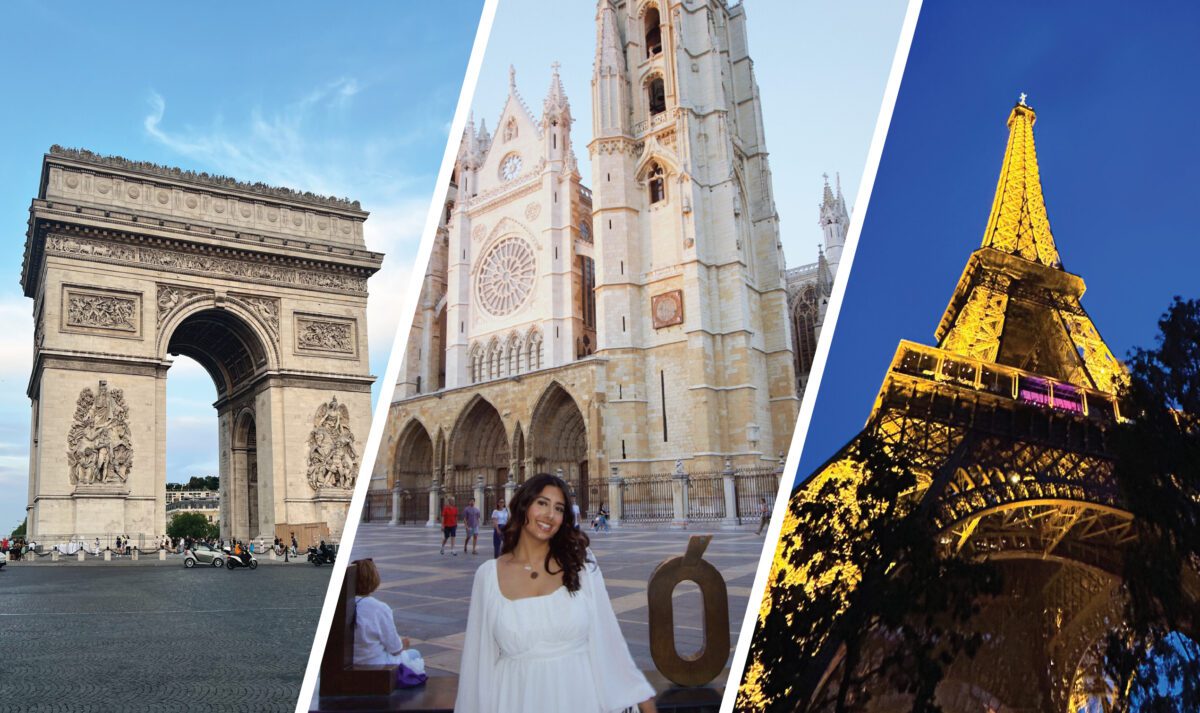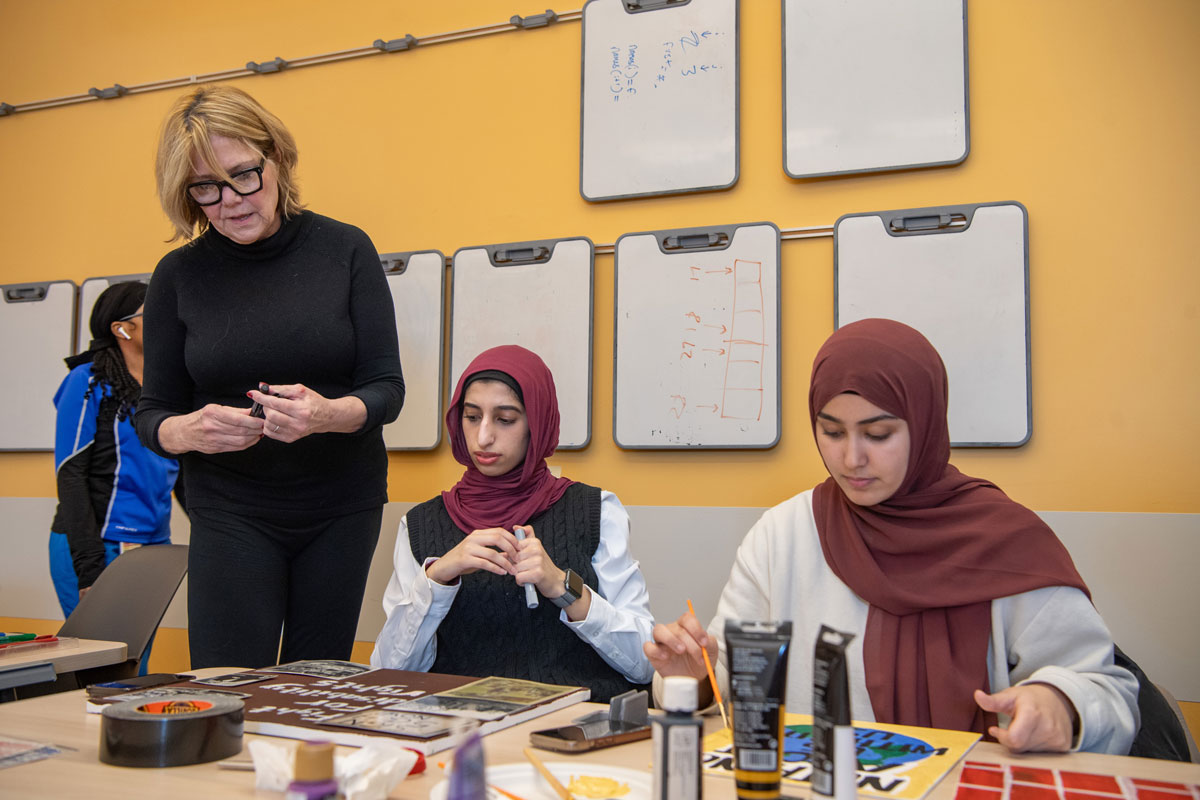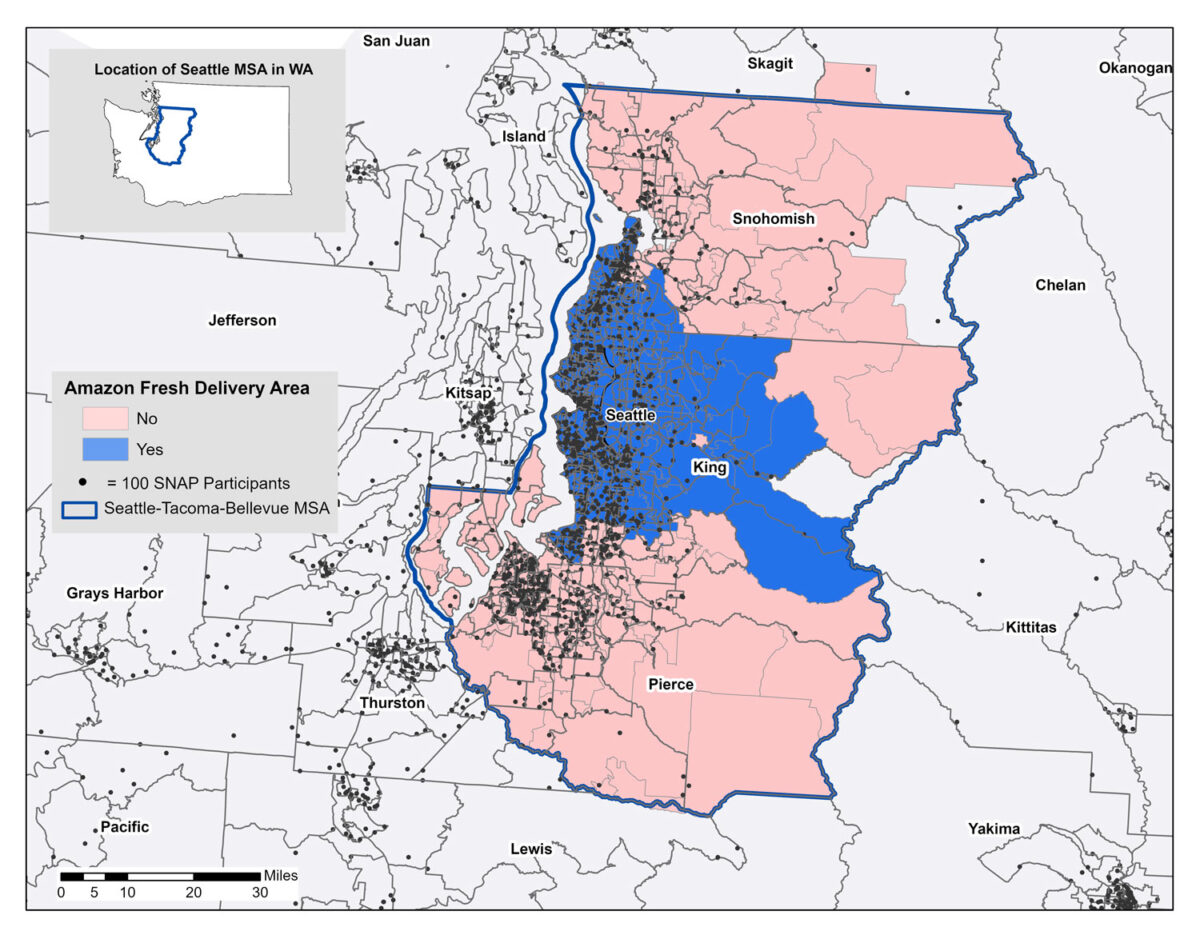What does it mean to be an American?
This was the question students in the University of Washington Bothell’s study abroad program, “Americans in Europe: Exile and Belonging,” spent more than a month pondering. To find out, they took an exploratory journey of self-discovery through literature and history as well as geography, traveling more than 5,000 miles away to Europe.
“The ability to see a place that you identify with by leaving it behind is a core theme of the course,” said Dr. Camille Walsh, associate professor in the School of Interdisciplinary Arts & Sciences., who led the 2023 trip in space and time with Dr. Lauren Berliner, also an associate professor in the School of IAS.
The program began in Paris, where students focused on the experiences of Black and other American migrants and exiles such as author James Baldwin.
A trip from past and present
Baldwin’s writing career began in the final decades of legislated segregation, and his fame grew in tandem with the civil rights movement. As a gay Black male and civil rights activist, he feared for his life and fled to Paris in 1948, stating, “I knew what was going to happen to me, I’d kill or be killed … I left because I didn’t think I could survive the race problems.”
Students in the program read Baldwin’s novel, “Giovanni’s Room,” which grapples with the struggles he faced. While fiction, the book focuses on a gay American man living in Paris who is coming to terms with his sexuality. “Publishing that book fostered a broader public discourse on race, sexuality and its intersections,” Berliner said. “It was an incredibly brave thing to do.”
For Bentley Artison, a 2023 alumnus from the School of Nursing & Health Studies who participated in the study abroad program, the book sparked serious reflections on how much has changed in the United States since its publication.
“It’s different today — but it’s also not,” he said. “While there is no longer segregation and everyone can go to the same places and do the same things, not everyone is treated the same. “There is certainly still racism embedded within our society,” Artison said, “and that’s painful to reflect on and understand as part of being an American.”
The lasting impact of travel
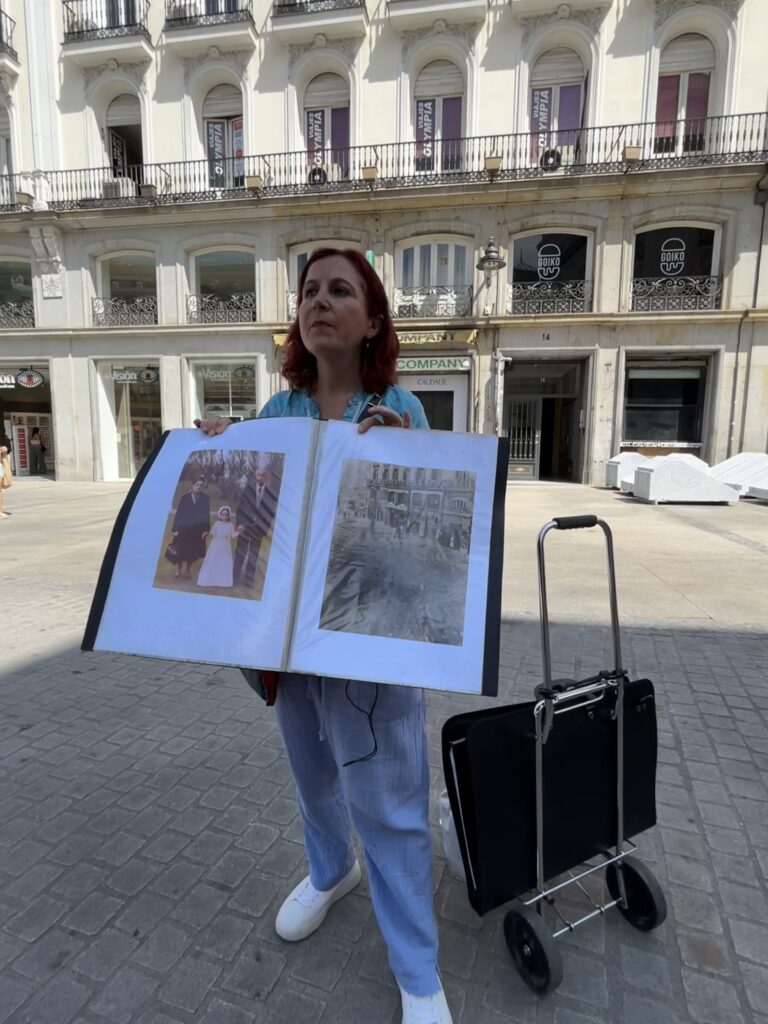
In addition to reading Baldwin’s book, students also spoke to Monique Wells, founder of Entrée to Black Paris, an organization that features the history, culture and contemporary life of African Americans and the larger African diaspora in Paris.
“She talked to the students about how people like James Baldwin navigated their race and identity differently in Paris than in the United States, where there is an overt and ever-present legacy of slavery,” Berliner said. “They were thought of as American before they were thought of as Black, and it was their nationality rather than their race that set them apart.”
Students also met with artist Laura Kingsley, an American who now resides in Switzerland. She created a sculpture titled “Murmurs of the Deep” inspired by Baldwin.
“Laura was inspired by ‘Stranger in the Village,’” Berliner explained, “in which Baldwin writes about how he is perceived and treated by residents of a remote Swiss village who have never encountered a Black person before.”
Being able to talk firsthand with the artist was eye opening for Artison. “Laura has traveled a lot, and she spoke to us about how she has carried each of those places and experiences with her,” he said. “That resonated with me, especially while being part of a study abroad program. I feel like I changed a lot as a person because of this trip.
“I, too, will be taking the knowledge, lessons and insights I gained abroad in my life moving forward.”
I feel like I changed a lot as a person because of this trip. I, too, will be taking the knowledge, lessons and insights I gained abroad in my life moving forward.
Bentley Artison, Health Studies alumnus ’23
The enduring power of a name
The latter half of the program was spent in León, Spain. It was a site of intense fighting during the Spanish Civil War in the 1930s, when artists and other citizens from the U.S. flocked to Spain to serve in the Abraham Lincoln Brigade or to draw attention to the global struggle against fascism.
“One of my biggest takeaways from this program is that there is a lot of power in a name,” said senior Adam Ellsworth, who is a double major in Society, Ethics & Human Behavior and in Media & Communication Studies. “A name always carries context and has a certain connotation, and that was emphasized by naming the war in Spain a civil war.”
This implied that the Spaniards were fighting each other, Ellsworth explained, but that was not necessarily true. “It was more of an invasion by Hitler and Mussolini, not the Spaniards per se,” he said. “Calling it a civil war, I never would have thought Hitler was involved.
“It made me question what else we are calling things to dress them up or to sugarcoat them or to keep people from learning the truth.”
Empathy and courage in action
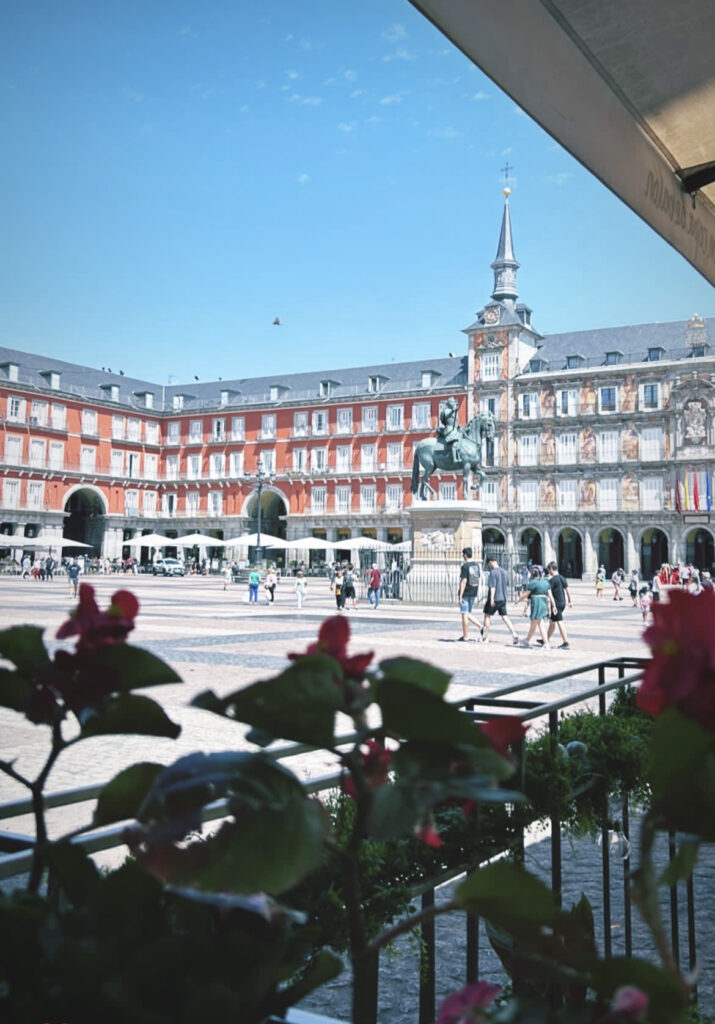
The students took a walking tour of the battlegrounds in Madrid led by Dr. Almudena Cros, a professor at Suffolk University in Madrid and founder of a tour company. They were able to see where the Battle of Ciudad Universitaria took place outside the city and where many of the university buildings still have mortar shells and bullet holes in their walls.
“The professor walked us through the historical memory — or I should say the lack of historical memory — around the Spanish Civil War,” Walsh said. “There was no plaque or explanation of what any of the buildings were, and that lack of acknowledgment gave us a glimpse into how a painful history in the recent past can affect a country.
“It was this sense that they don’t want to talk about it and want to just move on,” she said, “because of course the Franco regime did win in the end with the help of Hitler and Mussolini and maintained power for decades. It is certainly a lingering pain for the country.”
Artison said learning about the war and the United States’ involvement stirred up a lot of mixed emotions. “While the U.S. government chose to maintain strict neutrality in the war, thousands of American citizens, many of whom had never even fired a gun before, came to Spain to fight against fascism even though the U.S. government threatened to revoke their passports if they left.
“It saddens me that is the stance our government took, but at the same time it proved that we could come together,” he said. “I am proud of the people who went to fight and who showed that you don’t have to know people to care about them or what they are going through.”
Respite from the fast pace of life
In addition to learning from historical sites and figures, the students said that being able to experience some of the Spanish culture taught them about what it means to be an American.
“The way of life is so much slower and more relaxed than the United States,” said 2023 alumna Noor Sandhu, who majored in Law, Economics & Public Policy and went on the trip for that very reason — to learn how to slow down.
Through the Running Start Program, which allows high school juniors and seniors to earn college credits while completing their high school education, Sandhu was able to start college at 16 and graduate at only 19 years old. Her next plan is to prepare to take the LSAT and apply to law schools.
“I have just been go, go, go, and I didn’t take time to get involved in campus clubs or anything like that until my senior year,” she said. “I wanted to have this experience to finally take time for myself, enjoy and hopefully find some semblance of a work-life balance.”
Sandhu said going on this trip made her realize just how fast-paced the American culture can be in the extreme. “There is this pressure to always be doing more. Even smaller things like how we approach doing laundry were so different,” she said. “In the U.S., we cram as many clothes into a washer as we can and put it on the fastest cycle so we can get it done. In Spain, they hand wash their clothes and hang them on a line to dry. There isn’t that constant need to just rush through your day like there is in America.”
Discovering a measure of peace
Artison embarked on the trip for a similar reason, to find peace within himself.
“Learning about all these people who traveled here to do just that was incredibly inspiring,” he said. “I really realized how much your values can change based on where you are.”
Grateful for the experience of being in a different place, Artison said that “if I could do it all over again I would. I am not the same person I was when I left. I understand now that being an American comes with a lot of responsibility: to advocate for others and to value everyone equally.”
